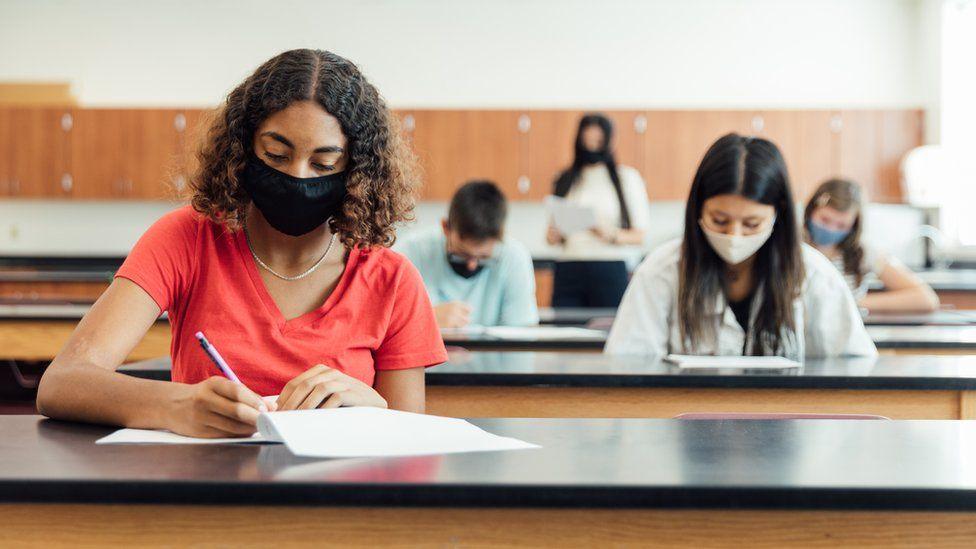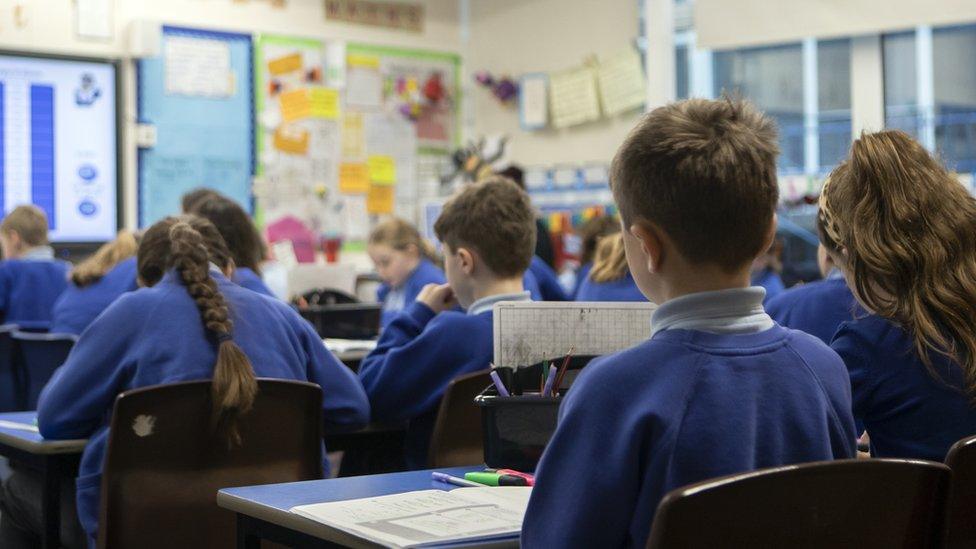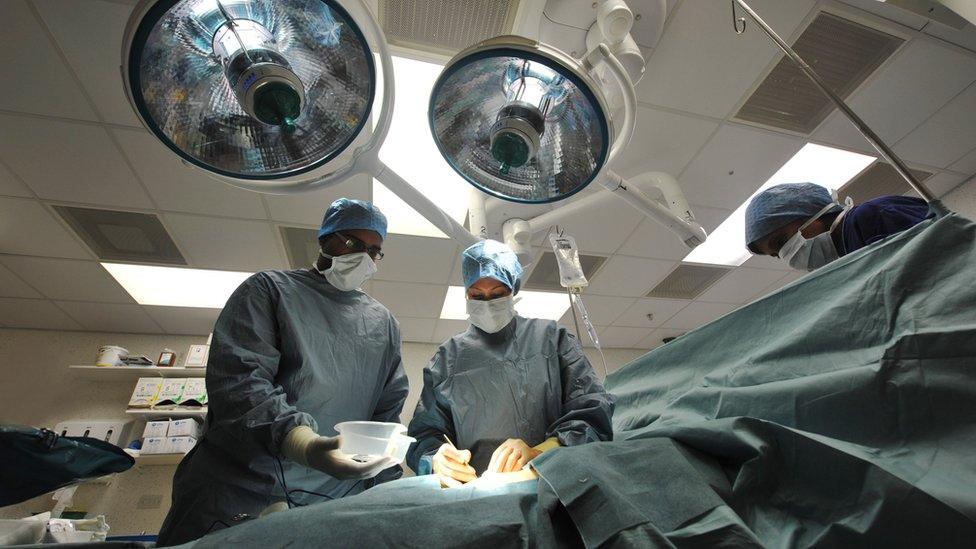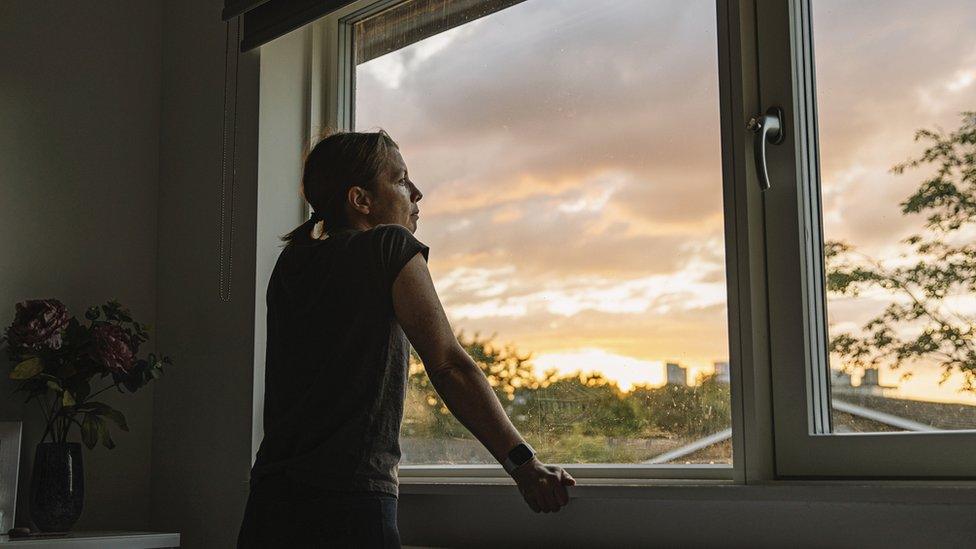Covid-19: Universities to return to face-to-face teaching
- Published

Only students doing courses with some practical learning have spent time on campus in the last academic year
Northern Ireland's universities and colleges can make a full return to face-to-face teaching when the new academic term begins next month, the executive has confirmed.
The majority of students spent the last academic year learning online.
Only those studying subjects such as medicine, engineering or music spent time being taught on campus.
Both Queen's and Ulster universities have signalled that they want a full return to campus as soon as possible.
On Thursday ministers agreed to a number of changes to Covid-19 rules, including the end of close contacts self-isolating if they are fully vaccinated and the rule-of-six for hospitality venues.
Further education and higher education and night classes will be able to return to full in-person learning.
In guidance for students for the new academic term, external, Queen's said vaccines were encouraged but not required for on campus learning.
In its "campus intentions, external" released prior to Thursday's announcement, Queen's said it was committed to being on campus in September 2021 and "planning for near normal", with a return to pre-pandemic teaching capacity.
However measures such as ventilation and one-way systems will be in place.
Meanwhile, Ulster University has told students that it has contingency plans to "pivot back to online learning", external if public health guidance changes.
'Logistical challenge'
Primary and post-primary students will no longer have to keep to class bubbles, however post-primary pupils will still have to wear masks in class.
Graham Gault of the National Head Teachers Association (NAHT) told the BBC's Good Morning Ulster programme bubbles had presented "a huge logistical challenge" for many principals, but believes there had been "mixed reactions" to their removal.
"The sooner we can move beyond them the better, but there is a degree of anxiety about how we then identify children who are close-contacts when a positive case is identified," Mr Gault said.
"They have been a useful boundary of how far close-contacts can go.
"We're look forward to seeing the guidance that the Department of Education will produce later today or later this week which will hopefully give more procedural detail on how principals can identify and manage children who have been identified as close contacts of a positive case."

Students will no longer have to keep to class bubbles
Children are considered extremely low risk for becoming ill or dying from Covid-19, and studies have shown long-lasting symptoms in children are rare.
Primary school principal Martine Mulhern said she was delighted that children would be able to return to school in September without the need to worry about bubbles.
The head teacher of St Cecilia's College in Londonderry said: "These kids are mixing outside of school, they are on school busses together, it was very difficult to maintain these bubbles within the school anyway."
"We want to make sure when we get back to school in September that we stay there, and we don't have to go out for one or two months or whatever."
Related topics
- Published13 August 2021

- Published12 August 2021
